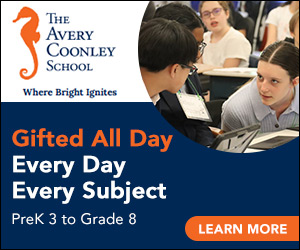Global Awareness, Ethical Development and This Moment in Time
By S. Nikki Myers, M.A.
To say that there is a lot going on in the world at the moment is such a dramatic understatement. This week, the last of February 2025, I was on a video call with members of the Global Awareness Network in NAGC, and colleagues from California, Washington, Colorado, Nevada, Jamaica, and New Zealand. Annemarie Roeper, a force of nature and an advocate for the ethical development of gifted children, among other child-centered goals (Silverman, 2001), instigated the launch of the Global Awareness Network (Delisle, 2012) as a way to connect and inspire across gifted education. I asked this international group, including those who knew her well, how things are going in their parts of this world.
One colleague shared that her professional, paid K12 educational work is fully government-grant funded which has created nervousness, limits on the types of communication they can use, and discussions across the state concerning what resources feel safe to share with families, or not. In contrast, the nonprofit organization on the volunteer side of her life has almost finalized a published statement of solidarity, sensitivity, and compassion for intersectional groups of gifted learners, such as families with giftedness and immigrant status, or other areas mentioned by recent federal orders. They want to develop and publish the words that say, in a meaningful way, You are seen. You belong.
Another colleague shared what came to mind: the epidemic of loneliness highlighted by the former U.S. Surgeon General Vivek Murthy. In an interview last year (Tamron Hall Show, 2024), he compared the physical and mental health impacts of loneliness and isolation (Selz, 2023) to smoking fifteen cigarettes a day. On a recent, January 7, 2025 Bit of Optimism podcast (Simon Sinek, 2025), Dr. Murthy discusses where do we go to feel like we belong? My colleague thinks about this topic in her daily work with students, as she seeks and finds ways to help them connect, support, and encourage each other.
Dr. Rosemary Cathcart, from her place on our video call all the way from New Zealand, was urged by Dr. Linda Silverman to discuss the resources that she has written on the ethical development of children. From Rosemary’s book, They’re Not Bringing My Brain Out, in chapter 27: “Gifted children in particular tend to have a strong concern with justice but may feel overwhelmed by a sense of the impotence of the individual. Providing some framework to help them develop a belief in the capacity of the individual to make a difference is a critical element in their growth as effective individuals, ultimately with a strong life vision (Cathcart, 2020).” In that chapter, Rosemary discussed the conversations that can happen from home and school collaboration to develop students’ awareness of how values are developed, to understand other people’s ways of gaining knowledge, and to use emotional sensitivity and perceptiveness. She recommends finding issues that are important to children, at their level, to use as teachable moments. She also suggests locating opportunities in the curriculum for discussing the behaviors, actions, and choices that people make. Programs such as Future Problem Solving, Philosophy for Children, and methods such as the Socratic technique (Miller, 2021) with secondary students and also with young students (Gregor, 2019), can build these thinking skills. Rosemary gave multiple, practical examples of this thoughtful, real work with students in the book, and shared on the call how the work continues.
Linda helped us wrap up the conversation as she mentioned work for an upcoming issue of Advanced Development: A Journal on Adult Giftedness, and also shared highlights from the Global Awareness Network Meeting at the 2024 annual conference in Seattle. “Annamarie was a force, and if she said we need this, I would say ‘okay, how do we do it?’… She dreamed of an organization that would care about the ethical development of the gifted. She had her SAI model (Self Actualization Interdependence Model)(Roeper, 1997; Roeper School, 2025), which was all about, Who are you? Not, what can you do? It’s about your own evolution as a human being, not how you can fulfill my expectations of you. She brought that energy to NAGC… and now it feels like yes, there are people interested, and we can go forward… Annemarie’s original vision was to have an organization that was a part of all of the organizations for the gifted… we’re entering a new era where collaboration and cooperation and ethics are important, and I think this is the time to revisit and rediscover Annemarie’s work (Silverman, 2024, personal presentation).” From the Global Awareness Network, we hope that where you are, you feel that you belong, that you matter, and that your work for students and with students matters. Here is to the role of ethical development, compassion, and connection in our field of gifted education.
References
- Cathcart, R. (2020). They’re Not Bringing My Brain Out: Understanding and Working with Gifted and Talented Learners (4th ed.). Hachette New Zealand.
- Delisle, J. (2012). Annemarie Roeper: The voice of gifted children. Roeper Review, 34(4), 209–210. https://doi.org/10.1080/02783193.2012.715331
- Gregor. (2019, February 11). Socratic teaching for kindergarteners? Can you even do that? Scholé Academy. https://scholeacademy.com/socratic-teaching-for-kindergarteners-can-you-even-do-that/
- Miller, R. (2021). Using the Socratic Method In Your Classroom. Edutopia. https://www.edutopia.org/article/using-socratic-method-your-classroom/
- Roeper, A. (1997). Listen to the gifted child. Roeper Review, 19(3), 166–167. https://eric.ed.gov/?id=EJ549028
- Roeper School. (2025). Early Educational Philosophy. The Roeper School. https://www.roeper.org/list-detail?pk=93120
- Selz, A. (2023, May 2). Loneliness poses health risks as deadly as smoking, U.S. surgeon general says. PBS News. https://www.pbs.org/newshour/health/loneliness-poses-health-risks-as-deadly-as-smoking-u-s-surgeon-general-says
- Silverman, L. K. (2001). This issue honors Annemarie Roeper—A gifted teacher and teacher of the gifted. Roeper Review, 23(4), 188. https://www.proquest.com/docview/206697121/abstract/40BFCACB81054619PQ/1
- Simon Sinek (Director). (2025, January 7). The Cure for Loneliness with U.S. Surgeon General Vivek Murthy | A Bit of Optimism Podcast [Video recording]. https://www.youtube.com/watch?v=7xsueRaWSa8
- Tamron Hall Show (Director). (2024, January 10). The Surgeon General’s Stern Warning About the Loneliness Epidemic [Video recording]. https://www.youtube.com/watch?v=Q77HJgVSCfc


